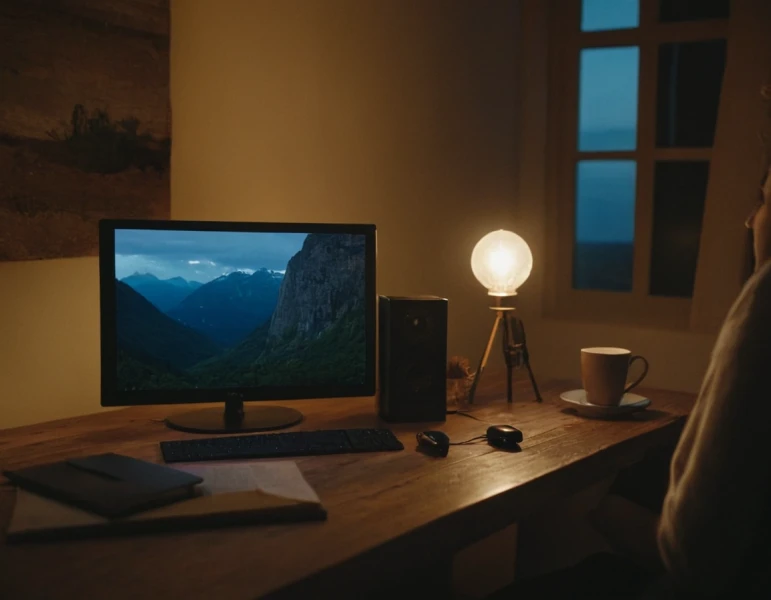Educa UNIVERSITY|JOBS & PROFESSIONS
Teleworking: A work revolution from personal experience
Related Masters
Teleworking: A work revolution from personal experience
The telework... that word that a few years ago was hardly heard in offices. Today, after the great change brought about by the pandemic and digital transformation, it is almost as common as ordering a latte. As Carlos Hidalgo, I have had the opportunity to work from home, with successes and mistakes, so I will tell you, from my personal experience, how this mode of employment has transformed the way we see work.
What is teleworking?

Teleworking is simply a way of working remotely, outside of traditional offices. From home, a coffee shop, or even at the beach (if you have a good connection). The key is flexibility that allows you to manage your time and space at your convenience, as long as you fulfill your work responsibilities.
This concept, although it seems modern, has its roots in the 1970s, when Jack Nilles coined it while working at NASA. His idea was to avoid unnecessary commuting to offices, reducing environmental impact and transportation costs.
My experience with telecommuting
I started teleworking on a partial basis before it was popularized by the pandemic. At first, like everything else, it seemed like a dream: no commute, more time for me and my stuff, and the possibility of working in my pajamas (although I assure you that you stop doing that quickly). But as in everything, with time, you realize that not everything is so simple.
Advantages of teleworking
If you are thinking of jumping into the world of teleworking, here I share with you the main advantages that I have experienced and that many agree in highlighting:
1. Hour flexibility
The telework allows you to manage your schedule. This is a great pro if you have children, like to do sports in the mornings or simply prefer to work evening hours. Not having to stick to a rigid 9 to 5 schedule frees you up and makes you more productive.
2. Time and money savings
Forget about long commutes by car or public transport. Not only do you save money on gas or subway tickets, but you also gain time for yourself. That time you can invest in taking care of your health, spending more time with your family or enjoying your hobbies.
3. Better family reconciliation
When working from home, you have the possibility to be present for important moments of family life. It is not the same coming home late from work and seeing your children already asleep, than being able to take a break to share a meal or help with homework.
4. Personalized work environment
The home office is how you want it to be: music, lighting, temperature... you decide everything. This creates an environment that is more comfortable and conducive to concentration. Of course, the key is to find a space in your home that is exclusively for work, otherwise, the distractions can be an enemy.
Disadvantages of telecommuting
Now, I tell you what few say about teleworking and that I have experienced firsthand:
1. Social disconnect
Working from home can be solitary. You miss the hallway conversations, the coffees with colleagues and that energy you only feel in an office. It's not the same having a Zoom meeting as chatting face-to-face.
2. Lack of boundaries
This is serious business. teleworking gives you flexibility, but if you don't know how to organize yourself, you can end up working more hours than you should. It's very easy to fall into the trap of "just one more email" and suddenly it's 9 o'clock at night. Setting limits is vital to not burn yourself out.
3. Distractions at home
The home is full of temptations: TV, housework, family. It's very easy to lose focus if you don't have a strong>strong discipline. Therefore, I recommend having a fixed workspace and, if possible, being alone during working hours.
4. Sedentarism
Another big disadvantage is sedentarism. In the office you would get up to go to the printer or get coffee. At home, it's easy to sit still for hours at a time. In the long run, this can affect your health, so I recommend taking active breaks and moving around.
Tips for successful telecommuting
Now, I want to share with you some practical tips that have helped me be more productive working from home:
Set a schedule: Yes, flexibility is great, but it's easy for work to stretch indefinitely if you don't have a set schedule.
Create a workspace: Find a quiet, well-lit place that is exclusively for work. Avoid working in bed or on the sofa.
Take active breaks: Get up every hour, stretch your legs and walk around a bit. Your back will thank you!
Disconnect: At the end of the day, turn off the computer and dedicate yourself or your family. It is vital to maintain a work-life balance.
Conclusion
The telework is here to stay, and although it has its challenges, it also offers great benefits. The key is to organize, maintain a balance and enjoy the flexibility it offers you. From my experience, I can tell you that not everything is rosy, but if you know how to adapt, you can make teleworking a successful and rewarding way of life.
Faculties
Trainings
The faculties embrace diverse academic disciplines and fields of study, opening doors to new perspectives and exploring different spheres of wisdom in a constantly evolving world.










